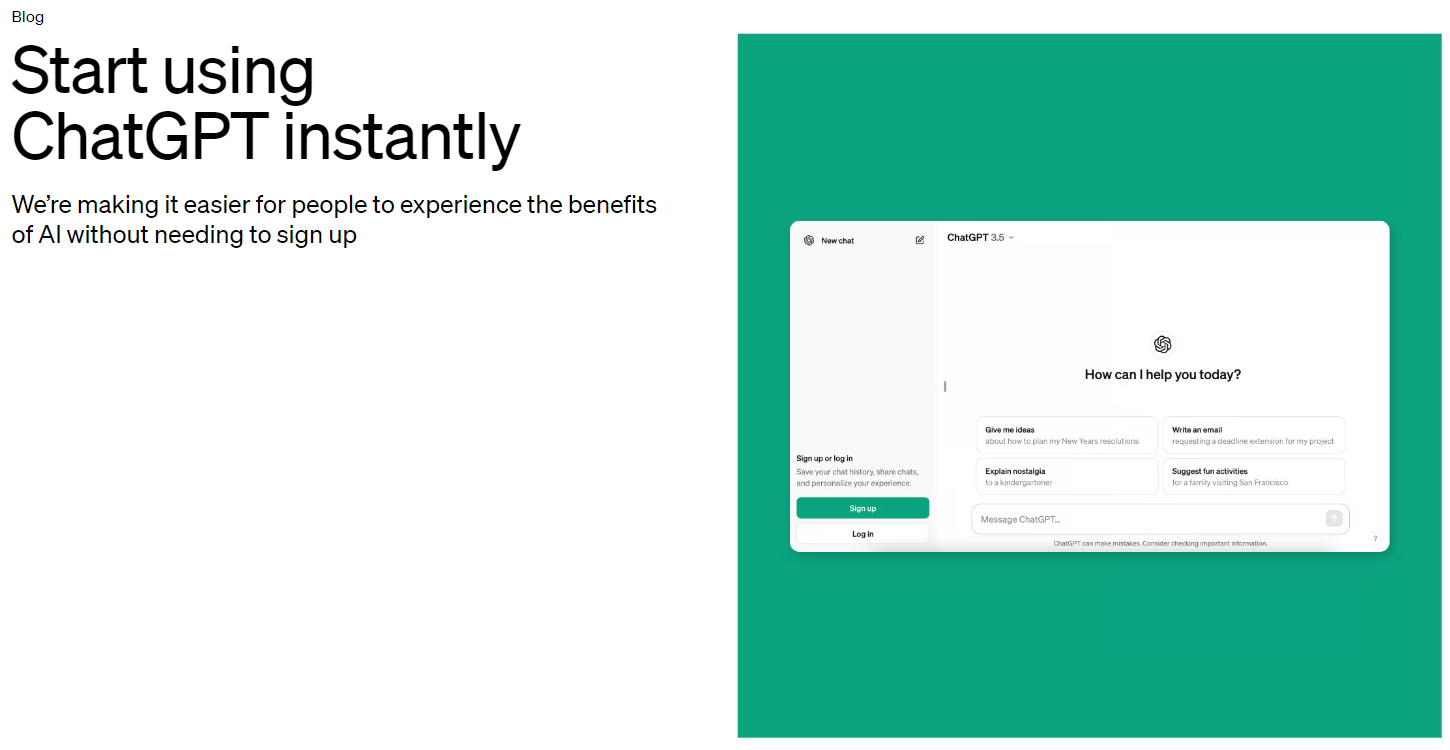OpenAI Announces No More Signup Needed for ChatGPT
On April 1st, the cutting-edge AI giant OpenAI announced that it would gradually remove the registration requirement for using its chatbot, ChatGPT. Users will no longer need to register for this service.
Despite the announcement being made on April 1st, it was not an April Fools’ Day prank. OpenAI stated, “Our mission is to make tools like ChatGPT widely available so that people can experience the benefits of AI. Over 100 million users from 185 countries use ChatGPT every week to learn new knowledge, seek creative inspiration, and get answers to questions. Starting today, you can use ChatGPT without registration.”

However, it is worth noting that unregistered users will lose some privileges that registered users enjoy, such as saving or sharing chat logs and using custom prompts. The chat data of unregistered users will default to being included in ChatGPT’s training dataset, unless users opt out in the “Settings” section. OpenAI also mentioned that the unregistered version of ChatGPT will have “slightly stricter content policies,” without providing detailed information on this.
Perhaps due to the surge in users following the removal of registration requirements, on the evening of the 1st, OpenAI announced that they were investigating an increase in error rates with ChatGPT and its API, which they claimed to have resolved after a few hours.
Furthermore, on the same day, according to the latest disclosure from the U.S. Securities and Exchange Commission (SEC), OpenAI’s CEO, Sam Altman, no longer has ownership or control over risk investment funds related to the company. The control has been transferred to Ian Hathaway, who has been assisting in managing the fund since its launch in 2021. As of May last year, the fund reported commitments amounting to $175 million, including commitments from Microsoft, a partner of OpenAI. Currently, the fund’s total assets exceed $325 million.
The fund, named OpenAI Startup Fund, aims to support and accelerate the development of promising AI startups. It operates in most aspects similar to conventional venture capital funds, with the only difference being its unique management approach. This approach allows CEO Altman to make investment decisions on behalf of external limited partners while retaining control, a practice that has previously faced scrutiny.
Lately, OpenAI has been at the forefront of various news. Reports suggest that OpenAI is set to establish its first Asian office in Tokyo in April this year. There are also rumors of a joint project between Microsoft and OpenAI to launch a data center project costing up to $100 billion, which includes the “Stargate,” an AI supercomputer slated to commence operation in 2028 to provide enhanced computational power support for OpenAI.
As for the highly anticipated GPT-5, OpenAI has maintained a low profile, creating a diverse range of speculations. Earlier reports indicated a possible mid-year release of GPT-5 this year, with OpenAI already providing a preview of an early version of GPT-5 to select corporate users. However, some foreign media sources claim that OpenAI’s “next major update” will be launched early next year.